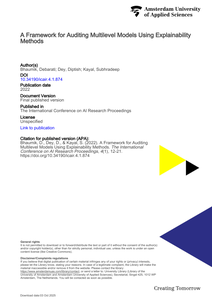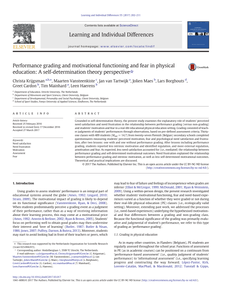The article engages with the recent studies on multilevel regulation. The starting point for the argument is that contemporary multilevel regulation—as most other studies of (postnational) rulemaking—is limited in its analysis. The limitation concerns its monocentric approach that, in turn, deepens the social illegitimacy of contemporary multilevel regulation. The monocentric approach means that the study of multilevel regulation originates in the discussions on the foundation of modern States instead of returning to the origins of rules before the nation State was even created, which is where the actual social capital underlying (contemporary) rules can be found, or so I wish to argue. My aim in this article is to reframe the debate. I argue that we have an enormous reservoir of history, practices, and ideas ready to help us think through contemporary (social) legitimacy problems in multilevel regulation: namely all those practices which preceded the capture of law by the modern State system, such as historical alternative dispute resolution (ADR) practices.
DOCUMENT

Multilevel models (MLMs) are increasingly deployed in industry across different functions. Applications usually result in binary classification within groups or hierarchies based on a set of input features. For transparent and ethical applications of such models, sound audit frameworks need to be developed. In this paper, an audit framework for technical assessment of regression MLMs is proposed. The focus is on three aspects: model, discrimination, and transparency & explainability. These aspects are subsequently divided into sub-aspects. Contributors, such as inter MLM-group fairness, feature contribution order, and aggregated feature contribution, are identified for each of these sub-aspects. To measure the performance of the contributors, the framework proposes a shortlist of KPIs, among others, intergroup individual fairness (DiffInd_MLM) across MLM-groups, probability unexplained (PUX) and percentage of incorrect feature signs (POIFS). A traffic light risk assessment method is furthermore coupled to these KPIs. For assessing transparency & explainability, different explainability methods (SHAP and LIME) are used, which are compared with a model intrinsic method using quantitative methods and machine learning modelling.Using an open-source dataset, a model is trained and tested and the KPIs are computed. It is demonstrated that popular explainability methods, such as SHAP and LIME, underperform in accuracy when interpreting these models. They fail to predict the order of feature importance, the magnitudes, and occasionally even the nature of the feature contribution (negative versus positive contribution on the outcome). For other contributors, such as group fairness and their associated KPIs, similar analysis and calculations have been performed with the aim of adding profundity to the proposed audit framework. The framework is expected to assist regulatory bodies in performing conformity assessments of AI systems using multilevel binomial classification models at businesses. It will also benefit providers, users, and assessment bodies, as defined in the European Commission’s proposed Regulation on Artificial Intelligence, when deploying AI-systems such as MLMs, to be future-proof and aligned with the regulation.
DOCUMENT

This paper examines the network governance approach of the Dutch Urban Envoy in the context of multilevel governance in the European Union. This paper aims to answer the research question on how the scope of network governance can explore the performance of the Dutch Urban Envoy. By analyzing network characteristics, such as legitimacy, actor-level properties, and network-level properties, this paper seeks to provide a nuanced understanding of the performance of the Dutch Urban Envoy. Drawing on previous research, this paper identifies the applicability and limitations of assessing network characteristics in understanding advocacy processes. The paper successfully visualizes the networks of the Dutch Urban Envoy and explores their roles and mandates, contributing to determining the added value of their position. However, the network governance approach has limitations in explaining the tangible successes and challenges of the Dutch Urban Envoy that cannot be directly attributed to their overall performance.
MULTIFILE

Symposiumbijdrage conferentie EARLI SIG 14, 11-14 september 2018, Genève Learning across the contexts of school and the workplace is highly relevant to the VET-sector. This contribution analyses these cross-contextual learning processes with three key issues in mind: (1) guidance by vocational educators, (2) assessment of students’ development and (3) design of VET-learning environments. Guidance, assessment and overarching VET-curriculum designs form the basis for constructive alignment as an approach to optimize conditions for high quality cross-contextual learning processes. We used the theoretical framework of boundary crossing to clarify the complex, multilevel nature of these key issues.
DOCUMENT

Music interventions are used for stress reduction in a variety of settings because of the positive effects of music listening on both physiological arousal (e.g., heart rate, blood pressure, and hormonal levels) and psychological stress experiences (e.g., restlessness, anxiety, and nervousness). To summarize the growing body of empirical research, two multilevel meta-analyses of 104 RCTs, containing 327 effect sizes and 9,617 participants, were performed to assess the strength of the effects of music interventions on both physiological and psychological stress-related outcomes, and to test the potential moderators of the intervention effects. Results showed that music interventions had an overall significant effect on stress reduction in both physiological (d = .380) and psychological (d = .545) outcomes. Further, moderator analyses showed that the type of outcome assessment moderated the effects of music interventions on stress-related outcomes. Larger effects were found on heart rate (d = .456), compared to blood pressure (d = .343) and hormone levels (d = .349). Implications for stress-reducing music interventions are discussed.
DOCUMENT

Music interventions are used for stress reduction in a variety of settings because of the positive effects of music listening on both physiological arousal (e.g., heart rate, blood pressure, and hormonal levels) and psychological stress experiences (e.g., restlessness, anxiety, and nervousness). To summarize the growing body of empirical research, two multilevel meta-analyses of 104 RCTs, containing 327 effect sizes and 9,617 participants, were performed to assess the strength of the effects of music interventions on both physiological and psychological stress-related outcomes, and to test the potential moderators of the intervention effects. Results showed that music interventions had an overall significant effect on stress reduction in both physiological (d = .380) and psychological (d = .545) outcomes. Further, moderator analyses showed that the type of outcome assessment moderated the effects of music interventions on stress-related outcomes. Larger effects were found on heart rate (d = .456), compared to blood pressure (d = .343) and hormone levels (d = .349). Implications for stress-reducing music interventions are discussed.
DOCUMENT

Depression is a highly prevalent and seriously impairing disorder. Evidence suggests that music therapy can decrease depression, though the music therapy that is offered is often not clearly described in studies. The purpose of this study was to develop an improvisational music therapy intervention based on insights from theory, evidence and clinical practice for young adults with depressive symptoms. The Intervention Mapping method was used and resulted in (1) a model to explain how emotion dysregulation may affect depressive symptoms using the Component Process Model (CPM) as a theoretical framework; (2) a model to clarify as to how improvisational music therapy may change depressive symptoms using synchronisation and emotional resonance; (3) a prototype Emotion-regulating Improvisational Music Therapy for Preventing Depressive symptoms (EIMT-PD); (4) a ten-session improvisational music therapy manual aimed at improving emotion regulation and reducing depressive symptoms; (5) a program implementation plan; and (6) a summary of a multiple baseline study protocol to evaluate the effectiveness and principles of EIMT-PD. EIMT-PD, using synchronisation and emotional resonance may be a promising music therapy to improve emotion regulation and, in line with our expectations, reduce depressive symptoms. More research is needed to assess its effectiveness and principles.
DOCUMENT

In opdracht van het ministerie van Binnenlandse Zaken en Koninkrijksrelaties heeft het lectoraat Changing Role of Europe van De Haagse Hogeschool de rol van de Dutch Urban Envoy geëvalueerd. De betekenis, de inzet, het vervolg en de toekomstige invulling van de rol van de Dutch Urban Envoy komen aan bod. Op basis van de inzichten van 37 interviews met 39 betrokken partijen (van het Ministerie van BZK, Nederlandse steden, Europese steden, koepelorganisaties, Europese instellingen en andere ministeries binnen de Rijksoverheid) en deskresearch zijn de volgende conclusies en aanbevelingen geformuleerd.
DOCUMENT

Grounded in self-determination theory, the present study examines the explanatory role of students' perceived need satisfaction and need frustration in the relationship between performance grading (versus non-grading) and students' motivation and fear in a real-life educational physical education setting. Grading consisted of teacher judgments of students' performances through observations, based on pre-defined assessment criteria. Thirty-one classes with 409 students (Mage = 14.7) from twenty-seven Flemish (Belgian) secondary schools completed questionnaires measuring students' perceived motivation, fear and psychological need satisfaction and frustration, after two lessons: one with and one without performance grading. After lessons including performance grading, students reported less intrinsic motivation and identified regulation, and more external regulation, amotivation and fear. As expected, less need satisfaction accounted for (i.e., mediated) the relationship between performance grading and self-determined motivational outcomes. Need frustration explained the relationship between performance grading and intrinsic motivation, as well as less self-determined motivational outcomes. Theoretical and practical implications are discussed.
DOCUMENT

Unhealthy eating behaviors and low levels of physical activity are major problems in adolescents and young adults in vocational education. To develop effective intervention programs, more research is needed to understand how different types of motivation contribute to health behaviors. In the present study, Self-Determination Theory is used to examine how motivation contributes to dietary and physical activity behaviors in vocational students. This cross-sectional study included 809 students (mean age 17.8 ± 1.9 years) attending vocational education in the Netherlands. Linear multilevel regression analyses were used to investigate the association between types of motivation and dietary and physical activity behaviors. Amotivation was negatively associated with breakfast frequency and positively associated with diet soda consumption and high-calorie between-meal snacks. A positive association was found between autonomous motivation and water intake, breakfast frequency, fruit intake, and moderate-to-vigorous physical activity. Autonomous motivation was negatively associated with the consumption of unhealthy products. Controlled motivation was not associated with physical activity or dietary behaviors. Different types of motivation seem to explain either healthy or unhealthy dietary behaviors in vocational students. Autonomous motivation, in particular, was shown to be associated with healthy behaviors and could therefore be a valuable intervention target.
DOCUMENT
